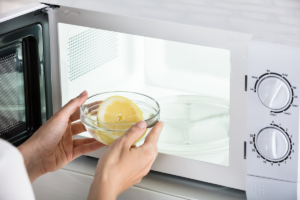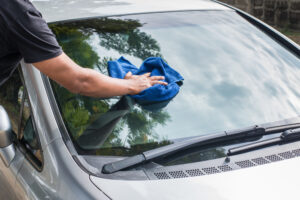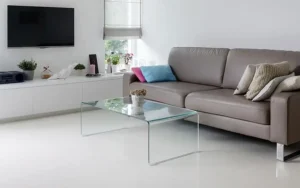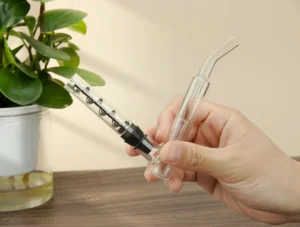If you’ve ever wondered how those pesky smudges and fingerprints get on your clean, self-cleaning glass, you’re not alone. But have no fear! There are ways to keep your glass clean and fingerprint-free. Here are a few tips and tricks to get you started.
What is self-cleaning glass?
Self-cleaning glass is a type of glass that has a hydrophobic and oleophobic coating. This means that the glass is water repellent and oil repellent. When water or oil hits the surface of the glass, it will bead up and roll off instead of sticking to the surface.
One of the most common uses for self-cleaning glass is in windows. The coating on the glass allows rainwater to bead up and roll off the surface of the window, keeping it clean. The coating also prevents fingerprints and other oily residue from adhering to the glass, making it easier to keep clean.
There are several brands of self-cleaning glass available on the market, including Pilkington Activ™ and Guardian Inactive™.
How does self-cleaning glass work?
Self-cleaning glass is made using a process called hydrophobic coating. This involves applying a very thin layer of a chemical compound to the surface of the glass. When this compound is exposed to water, it forms a barrier that stops water and dirt from being able to stick to the glass.
The benefits of self-cleaning glass
Self-cleaning glass is a type of glass that is coated with a material that helps to repel water and dirt. This makes it much easier to keep clean, as the dirt and water will simply bead up and roll off the surface. Self-cleaning glass can be used for a variety of applications, including windows, doors, shower enclosures, and more.
There are many benefits to using self-cleaning glass. Perhaps the most obvious benefit is that it is much easier to keep clean. You won’t have to spend hours scrubbing away at dirt and grime; all you’ll need to do is give the glass a quick wipe down. This can save you a lot of time and effort in the long run.
In addition to being easy to clean, self-cleaning glass also helps to keep your home or office looking neat and tidy. Because the glass repels dirt and water, it will stay cleaner for longer – meaning you won’t have to worry about unsightly smears or streaks. This can help to create a more professional appearance for your business premises, or simply make your home look more inviting.
Another benefit of self-cleaning glass is that it can help to reduce your energy bills. Because the glass helps to keep your home or office cooler, you won’t need to use the air conditioning as much – which can save you money in the long run. In fact, self-cleaning glass has been shown to reduce energy bills by up to 30%.
If you’re looking for an easy way to keep your home or office looking neat and tidy, then self-cleaning glass could be the perfect solution. With its many benefits, it’s easy to see why self-cleaning glass is such a popular choice for homeowners and businesses alike.
The drawbacks of self-cleaning glass
There are a few drawbacks to self-cleaning glass. One is that it can be more expensive than traditional glass. Another is that the chemicals used in the self-cleaning process can be harmful to the environment. Finally, self-cleaning glass is not 100% effective at preventing all dirt and grime from building up on its surface.
How to clean self-cleaning glass
Self-cleaning glass is specially coated to repel water and fingerprints, making it much easier to keep clean. However, the self-cleaning feature only works if the glass is regularly cleaned. The following tips will help you keep your self-cleaning glass looking its best:
-Wipe the glass with a damp cloth after each use.
-Clean the glass with a mild detergent or vinegar solution once a week.
-Rinse the glass thoroughly with clean water after cleaning.
-Dry the glass with a lint-free cloth or newspaper to prevent streaks.
Tips for cleaning self-cleaning glass
Assuming your self-cleaning glass is still functional (i.e. it’s not cracked or otherwise damaged), there are a few tips you can follow to ensure it stays clean.
One of the most important things to remember is that self-cleaning glass is designed to be cleaned on a regular basis – so don’t wait until it’s visibly dirty before taking action. The best way to keep self-cleaning glass clean is to wipe it down with a damp cloth after every use.
If you do let dirt and grime build up on your self-cleaning glass, you can use a mild detergent and/or vinegar solution to help break down the dirt and make it easier to wipe away. Just be sure not to use anything too harsh, as this could damage the coating on the glass.
In general, self-cleaning glass is low maintenance and easy to care for – just remember to wipe it down after every use, and clean any built-up dirt as soon as possible.
FAQs about self-cleaning glass
- What is self-cleaning glass?
Self-cleaning glass is a type of glass that has a special surface coating that helps to repel water and dirt, making it easier to keep clean.
- How does self-cleaning glass work?
When exposed to sunlight, the special coating on self-cleaning glass helps to break down dirt and water, making it easier to wash away.
- What are the benefits of self-cleaning glass?
Self-cleaning glass can help to make cleaning your windows quicker and easier, as well as reducing the need for harsh cleaning chemicals.
- Are there any drawbacks to self-cleaning glass?
Self-cleaning glass is generally more expensive than standard glass, and the coating can be damaged by certain cleaners and abrasives.
Conclusion
The activated oxygen/ozone, breaks down the dirt and grime on the surfaces of the glass and gum line. The dental ozone machine, is a powerful dental cleaning technology used to sanitize and clean teeth. It is a computer-controlled device that produces medical grade ozone/oxygen gas mixture.












